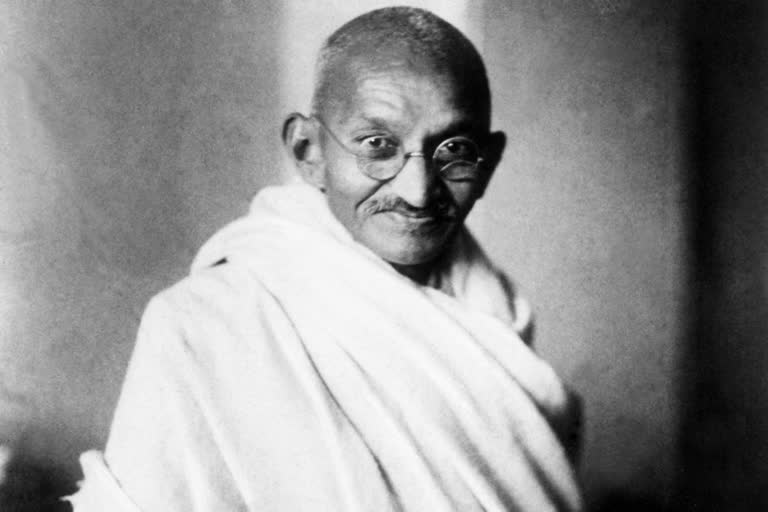Hyderabad: World peace is broadly described as an ideal of mutual cooperation among all nations. It generally includes an idea of non-violence wherein the nations voluntarily behave responsibly in a manner to prevent warfare. However, the world today is full of conflicts. Dispute over international boundaries, ethnic-conflicts, religious fundamentalism, river-water dispute et al have been festering for decades; showing little sign of resolution despite multiple rounds of talks and negotiations involving the third neutral party.
In the global platform for addressing and resolving the international disputes, Gandhi and his philosophy are seldom (if even once) seen as a possible remedy. Global communities - though respecting Gandhi - do not think of Gandhi as a ‘solution provider’; believing that today’s conflicts are far more complex to get their solutions through Gandhian means. At best, Gandhi’s ideologies are considered as a tonic only for social and cultural causes.
Even in the country of his birth and work, Gandhi may be revered as the Father of the Nation; but politically and economically his dictum stands as a medicine merely for cleanliness and cosmetic improvement in the rural economy. When such is the stark reality, the relevance of Gandhian philosophy of non-violence in the global context is anybody’s guess.
Nevertheless, in-depth study of Gandhi Ji’s views on global conflicts reveal that there surely is a co-relation between what Gandhi had said seven decades ago and why the world is now struggling hard, yet not succeeding in combating violence and bring peace. His views on peace, as he wrote or said on various occasions, offer a solution to many of the contemporary conflicts.
As a matter of fact, many of today’s conflict management techniques have a clear shadow of what and how Gandhi had seen international issues in his times. The Mahatma said, “We should first have tolerance be able to amicably settle our differences. Otherwise, we will end up submitting ourselves to the arbitration of a third party, which is avoidable.”
To avoid seeking third party arbitration, he believed that tolerance has numerous facets of social, ethnic, religious and political elements. “Peace is in danger when the quotient of tolerance falls down. The true character of a conflict must be identified and may perhaps be attributed to any of those hidden elements.”
In one of his writings in Hind Swaraj, Gandhi Ji regretted a civilian government fighting with its own rebel citizens to uphold peace in a country; or, a highly civilized, democratized nation striving to fight cross-border conflicts with its neighbours to maintain peace in the region.
Elegantly putting this as a notion for nations who love peace and harmony, he wrote: “Peace will not come out of a clash of arms; but out of justice done by unarmed nations in the face of odds. It is a choice of non-violent approach towards peace. Unfortunately, very few nations try to put themselves in such a thoughtful state when the situation arises. They instead surrender to other forces which are not non-violent in essence.”
But how far such lofty, idealistic thoughts are relevant in today’s world when inter-state conflicts are increasing at an alarming rate and acrimony is at an unprecedented high?
A big 'NO' would be the instant response of many.
But, there are instances - though few - wherein some individuals who have solely made a change, smaller or larger, in their communities with bountiful of peace in their thoughts & actions. Bearing striking resemblance to Gandhian philosophy of peace & non-violence, they include Nobel peace prize winners in the current decade like Martti Ahtisaari (2008), Muhammed Yunus (2006), Waangari Maathai (2004) and Shirin Ebadi (2003).
In the domain of their work, they have effectively changed their parts of the world to maintain amity and bring peace in the society. Aung San Suu Kyi (the Nobel Peace Prize laureate in 1991) and Nelson Mandela (South African anti-apartheid revolutionary and President of South Africa from 1994 to 1999) are among others who followed the principle of non-violence and succeeded in their objectives.
Read: Gandhi’s Satyagraha came from his 'experiment with truth'



